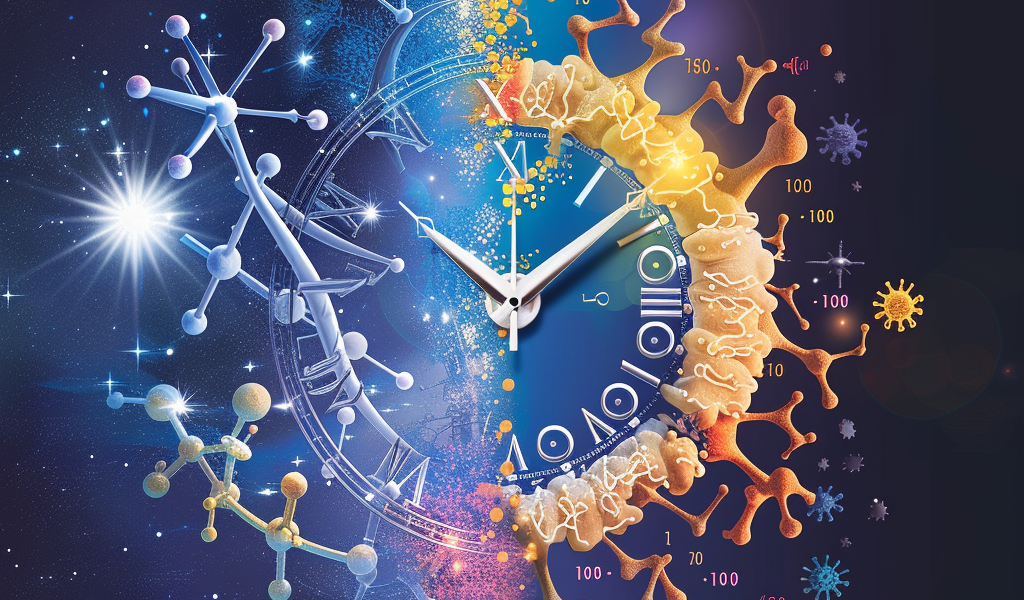Recent research from Duke-NUS Medical School and the University of California, Santa Cruz has unveiled a crucial mechanism for regulating the human body’s internal clock. This groundbreaking study focuses on Casein Kinase 1 delta (CK1δ), a protein that serves as a key player in the management of circadian rhythms, which dictate essential functions such as sleep-wake cycles.
The findings, published in the esteemed journal PNAS, highlight the significance of CK1δ in maintaining the timing of our biological clock. This protein fine-tunes the circadian rhythms by tagging other proteins involved in this intricate system, thereby influencing their activity. Additionally, CK1δ can modify itself, further impacting its regulatory capabilities.
Researchers have identified two distinct isoforms of CK1δ, named δ1 and δ2, which differ by a mere 16 amino acids located at the C-terminal tail of the protein. Despite this small variation, these differences play a substantial role in the functionality of CK1δ. Previous studies indicated that tagging these proteins diminishes their ability to regulate circadian rhythms, yet the precise mechanisms behind this process remained unclear until now.
Utilizing advanced spectroscopy and mass spectrometry techniques, the research team was able to closely examine the C-terminal tails of CK1δ. Their investigation revealed that the tagging process is determined by the unique sequences of these tails. Professor Carrie Partch, a Howard Hughes Medical Institute Investigator and a leading author of the study, stated, “Our findings pinpoint to three specific sites on CK1δ’s tail where phosphate groups can attach, and these sites are crucial for controlling the protein’s activity. When these spots get tagged with a phosphate group, CK1δ becomes less active, which means it doesn’t influence our circadian rhythms as effectively. Using high-resolution analysis, we were able to pinpoint the exact sites involved—and that’s really exciting.”
Professor David Virshup, the director of the Cancer and Stem Cell Biology Programme at Duke-NUS and co-corresponding author of the study, added, “Having first studied this protein more than 30 years ago while investigating its role in cell division, we are now equipped with advanced technology that allows us to delve deeper into its functions and mechanisms.”
This research holds promising implications for the development of new therapeutic strategies aimed at addressing disorders linked to circadian rhythm disruptions, such as sleep disorders, mood disorders, and metabolic syndromes. By understanding how CK1δ operates, scientists may be able to devise targeted treatments that can help restore balance to the body’s internal clock.
As the study continues to receive attention within the scientific community, it underscores the importance of ongoing research into the molecular mechanisms that govern our biological systems. The insights gained from this study could not only enhance our understanding of circadian biology but also lead to innovative interventions for a range of health issues tied to circadian rhythm dysfunction.
In conclusion, the recent discovery regarding CK1δ and its role in regulating the body’s internal clock marks a significant advancement in the field of chronobiology. With further exploration and understanding, researchers are hopeful that these findings will translate into effective treatments for the myriad of health problems associated with disrupted circadian rhythms.





